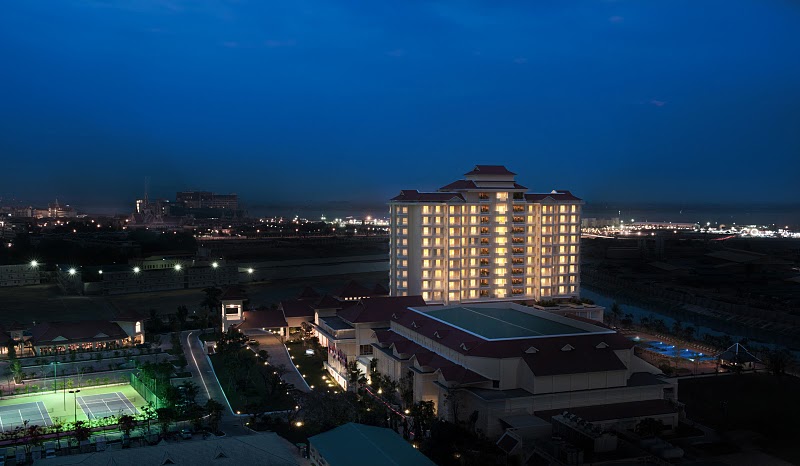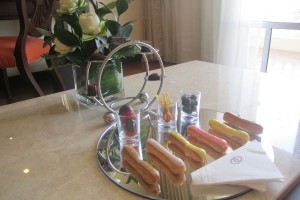[Editor’s Note: Lauren Quinn spent the spring in Phnom Penh as a Glimpse correspondent, examining narratives of trauma and the long-term effects of war. After exploring Cambodia’s past and present, she also got a peek at its future, courtesy of the Sofitel Phnom Penh.]
I am standing in front of a mini-bar in the first new five-star hotel to open in Phnom Penh in 20 years, staring at a thin, single-serve packet of Nescafe.

